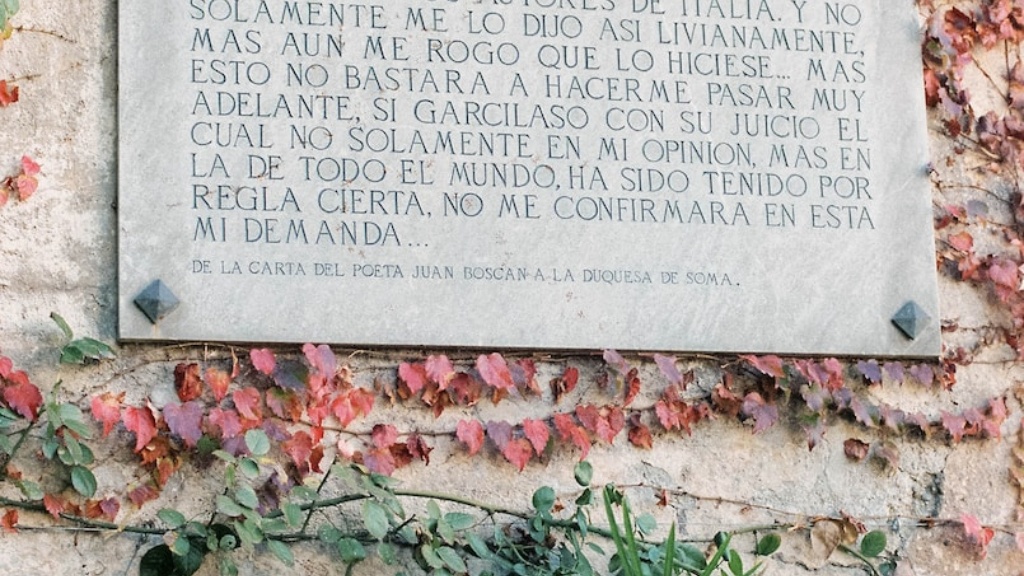Prologue
The literature of war, written in times of war, has a certain quality of emotional and psychological power that, when coupled with historically accurate images, can focus the attention of readers, reminding them of the true costs of conflict. Wilfred Owen is one of the greatest British war poets who knew firsthand the horrors of World War I and wrote about his experience in his famous war poetry. His poem ‘Dulce et Decorum Est’ takes a direct statement from the Roman poet Horace and turns it on its head. This article will explore why Wilfred Owen wrote his war poems and how his work still resonates with its readers.
Owen’s experience
Wilfred Owen had volunteered for the British army in 1915 and served as a Second Lieutenant in World War I until he was killed in action in November 1918. He experienced the full horror of war in the trenches of France, witnessing and experiencing horrors he recounted in his poems. He wrote eloquently and fervently of the despair and death that surrounded him, and the emotions of being under the duress of such war. His time on the front lines exposed him to terrible horrors that affected him deeply and had a long-term psychological impact on him. Through his poems, he was able to capture his deep emotions and tragedies during this time, which still resonate with many readers today.
Owen’s anti-war sentiment
Wilfred Owen took an anti-war stance in his writing, highlighting the wasted death and destruction caused by war. With his powerful poetry, he was able to expose the moral nightmare of war and challenge the idea that war was a “glorious” affair. Through his writing, he was able to capture the terrible truths of the war and create a vivid picture for readers that was more realistic than the rosy assurances put forward by others. He was able to show how soldiers were treated and the realities of death that were hard to avoid. His writing provided readers with a different perspective of the war, forcing them to confront the difficult issues he presented.
Owen’s use of poetic techniques
Wilfred Owen used poetic techniques to convey his anti-war message. His use of metaphor and symbolism was particularly effective in conveying his message. For example, in ‘Dulce et Decorum Est’, he used vivid imagery of the chaos of battle and used metaphors to represent the death of the soldiers. He also used language effectively to create an emotional response in the reader, with words such as ‘Observer’ and ‘spectre’ to highlight the horror of war. Additionally, he also used irony and a haunting sadness to emphasise the tragedy of war. Through these techniques, he was able to evoke strong feelings in his readers, which is still felt today.
The legacy of Owen’s poetry
Wilfred Owen’s war poetry continues to resonate with readers today and is taught in many schools around the world. His work is seen as an important part of our understanding of the true horrors of World War I, and the legacy of his work has endured. His poems, like ‘Dulce et Decorum Est’, remain a powerful reminder of the cost of war, and his insights into the human condition have challenged us to ponder the consequences of war and consider our own attitudes to it. His work has inspired other writers, helped foster anti-war sentiment, and has become a vital part of our understanding of the Great War.
Owl’s impact on our beliefs and values
Owen’s poetry has had a lasting impact on our beliefs and values, providing us with an insight into the realities of war. Through his poetry, we have been challenged to consider our own beliefs and values around war, such as the idea of it being a “glorious” affair. His poem has been described as “the greatest anti-war poem ever written,” and his words have resonated with people from all walks of life. His work has also inspired a new generation of writers and anti-war activists, and his legacy remains strong today.
Reflection on Owen’s work
Wilfred Owen’s war poetry is a powerful reminder of the consequences of war and the devastating impact it can have on individuals and societies. He wrote about his own experiences of war and provided readers with an intimate portrait of the horrors of war. His writing has challenged us to rethink our attitudes to war and to consider the benefits and cost of conflict. His legacy of providing authentic and powerful insights into war will live on and continue to educate and engage readers.
Conclusion
Wilfred Owen’s war poetry provides us with a valuable and vivid insight into the realities of war. His writing has challenged us to consider our attitudes to war and to realise its human cost. His powerful words continue to resonate with readers, even today, and serve as a reminder of the true horrors of war.


